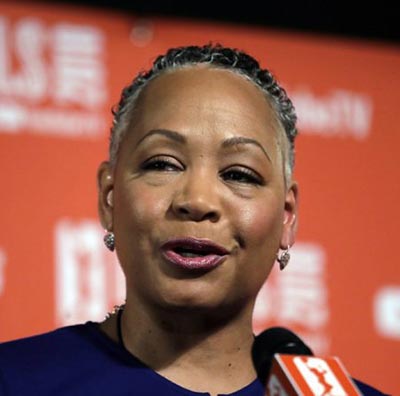The country’s best known-international information technology company, The Resource Group (TRG) Pakistan Ltd has warded off a takeover bid led jointly by none other than its former CEO and co-founder Muhammad Ziaullah Khan Chishti and the influential JS Group.
As TRG Pakistan filed a petition in the Sindh High Court (SHC) in October against its former CEO, and Jahangir Siddiqui & Co Limited and 12 other individuals and entities allegedly involved in “surreptitiously” acquiring its shares to orchestrate taking over the company’s board, many individual and institutional share-holders are disapproving of the former CEO’s actions.
“I cannot think of why the former CEO or his proxies such as JS would even try to engineer a hostile takeover bid and attempt to harm TRG Pakistan shareholders, including themselves,” said an individual investor, requesting anonymity. “The former CEO knows very well that his reputation is toxic following a sex scandal involving an ex-employee,” he said. “We are really glad that his efforts have been blocked by the company”.
Pakistani-American Muhammad Ziaullah Khan Chishti — known more as Zia Chishti — is a multimillionaire tech entrepreneur, who was once seen as a poster boy in the US and Pakistani tech world for his successful business ventures. His was a success story of a rare Pakistani venture, which transformed into an international player. To Zia’s credit is also the establishment of a dental brace business which is now worth $15 billion.
Chishti founded ‘The Resource Group International Limited’ (TRGIL) in 2001, which was initially funded with Pakistani capital raised through the TRG Pakistan listed vehicle which continues to hold a non-controlling stake in TRGIL. It transformed into a global technology holding company, employing around 8,000 people in Pakistan out of nearly 35,000 worldwide. The company remits around 100 million dollars annually in export earnings to this dollar-starved country. TRGIL with its head- quarters in Washington, DC has eight subsidiaries, according to the company website.
- Afiniti
- TRG (Pvt) Limited
- Etelequote Limited
- Digital Globe Services, Ltd.
- TRG Marketing Solutions Ltd
- TRG Field Solutions
- IBEX Global Solutions Limited
- RRG Holdings LLC
However, after the sex scandal came to light, 51-year-old Chishti resigned from the management positions of TRG and all its subsidiaries, including Afiniti, which he was leading as its CEO.
The lawsuit
TRG Pakistan Limited, its Chairman of the Board of Directors Mohammed Khaishgi and Chief Executive Officer Hasnain Aslam in their joint lawsuit against Jahangir Siddiqui & Co Limited, Chishti, and others, alleged that they “surreptitiously” acquired the company’s shares to attempt to orchestrate a takeover without making the required disclosures, attaining a joint shareholding of 34% which exceeds a statutory threshold of 30% beyond which they would have been required to make a public tender offer.
Subsequent to the filing of the lawsuit, TRG Pakistan has received a stay order from the Sindh High Court restraining the defendants from exercising voting control over any shares held by the defendants in excess of 30%.
TRG’s lawsuit offers a captivating read. It highlights how in a developing country, influential businesses manage to dodge and evade regulators and sometimes even win them over on their side as well as find loopholes in the system to advance shady deals.
Besides Jahangir Siddiqui & Co. Limited and Zia Chishti, the TRG Pakistan has made JS Bank Limited, JS Infocom Limited, Energy Infrastructure Holding (Pvt) Limited, JS Global Capital Limited, The Trustees of JS Bank Limited-Staff Gratuity Fund, Ali Jahangir Siddiqui, Asad Nasir, Suleman Lalani, Abid Hussain, Sarah Pobereskin, DJM Securities Limited and Al-Habib Capital Markets(Pvt.) Limited as parties to the case and the Securities and Exchange Commission of Pakistan (SECP) as a proforma-party to the case.
The petition says that these individuals and entities, named as defendants, are allegedly working at the behest of TRGIL’s former CEO Zia Chishti, “who was convicted in an arbitration in the United States of America of sexual assault of an employee of a portfolio company” where he was serving as the chairman and CEO at the time.
Zia Chishti’s arbitration outcome was disclosed in sworn testimony by his victim, Tatiana Spottiswoode, in the United States Congress on November 16, 202l. (See box ‘Sex Scandal’ on page XXX for details)
The management of TRG alleged that after resigning from all his positions at TRGIL, TRG Pakistan and other subsidiaries in November 2021 following the public disclosure of his sexual assault conviction, Zia Chishti tried to plot a comeback.

Now it is market talk that individuals and entities, including Zia Chishti, his wife Sarah Pobereskin and the JS Group and its subsidiaries accumulated shares of TRG Pakistan in violation of the pro- visions of the Securities Act, 2015 and Listed Companies Regulations, 2017. Under the law, they should have made public announcements and disclosed the purchase of shares in TRG, which now exceeds more than 30 per cent, market players say.
TRG’s petition alleged that the information pertaining to the purchase of the company’s shares by Chishti and his aides nominated as defendants was deliberately concealed with “ulterior motives” in an attempt to take over the company. “Defendants No. 1 to 7 (Jahangir Siddiqui & Co Ltd, its subsidiaries and Ali Jahangir Siddiqui) have a history of at- tempting similar hostile takeovers, such as in the well-covered case of Hum TV in 2019-20.”
TRG Pakistan also alleged that the accused “have been engaged in a continual exercise of disruption, distraction and interference (in the company affairs), dispatching a flurry of mostly frivolous complaints (against it) to the Securities and Exchange Commission of Pakistan… who in turn has duly obliged” them by issuing a series of hasty notices, which display a bias in their favour. Such actions remain detrimental to TRG Pakistan’s interest and its share- holders and stand in violation of the laws of Pakistan, the petitioner said.
A Pakistani success story
In the petition, TRG Pakistan – a public limited company with a market capitalisation of 80 billion rupees as of 30 November 2022 — argued that its association with a person of its former CEO’s reputation would “cause massive destruction to its reputation and value” of shares. The company’s main line of business, through the non-controlling shareholding in TRGIL, is to indirectly invest in a portfolio of companies in the technology and IT-enabled services. It has a ‘Fortune 500’ client-base mainly in the United States. These companies have annual revenue of approximately $800 million.
Given their link to Pakistan — both from the shareholder and operation- al perspective — TRGIL and TRG Pakistan — are veritable Pakistani success stories at the global level. TRG Pakistan’s more than 10,000 shareholders include the general public — both local and foreign — as well as institutional investors. The is- sued, subscribed and paid-up share capital of TRG Pakistan is 545.4 million shares, valued at approximately 80.1 billion rupees as of end November 2022. For the year ended June 30, 2022, both local and foreign investors collectively own 44.2 per cent shareholding in TRG Pakistan.
The Sex Scandal
Zia Chishti — born to a Pakistani mother and an American father in Maine, US, in 1971 — had a stellar career before the sex scandal took the wind out of his sails in November 2021.
All seemed to be going well for Chishti until a Columbia law student, Tatiana Spottiswoode, who was a former employee of his company Afiniti, made harrowing allegations against the multimillionaire tech entrepreneur of sex abuse, harassment and physical violence during a business trip to Brazil in 2017.
Spottiswoode, 23, had testified be- fore a US Congressional Committee hearing, which was investigating arbitration clauses that companies write into contracts and their effects on victims of harassment and other crimes, international media reported, while covering the proceedings of the event.
In her testimony, Spottiswoode — the daughter of an Afiniti co-founder — alleged that Chishti had sexually assaulted her during a business trip to Brazil and filed for arbitration to silence her. Providing photographs of the alleged assault as part of her testimony, she described the encounter as “violent.”
“My body was covered with scratches, cuts and contusions. I had bruises around my neck that looked like I had been strangled, a large bump on my head, a black eye,” the media quoted her as saying.
She also said that during a visit to Dubai in 2016, Chishti groped her in front of co-workers and assaulted a colleague.
Spottiswoode narrated how she first met Chishti when she was barely 12 or 13. “He was a business associate and friend of my father’s,” she said.
“When I was in my senior year of college in December 2014, Chishti, who was 43, invited me on a ski trip … but the trip was disguised to groom me,” she told the committee.

Spottiswoode said that after Chishti pursued her for nine months, she agreed to date him but left him after spending some time together.
A few months later, Chishti asked her to join his company, presenting “a rosy picture of a great career opportunity. Naively, I believed him” after he promised that he did not expect any sexual favours in return.
In April 2016, Spottiswoode signed a contract with Afiniti that included an arbitration with a strong confidentiality clause, which she did not fully understand. As Spottiswoode started working for the company, she said she realised that Chishti was “not willing to treat me as an employee.”
“Instead, over the next 18 months, he oscillated between pressuring me for sex and punishing me. When I re- buffed him, he humiliated me in front of co-workers and then ignored me completely, causing me to fear for my job,” she told the committee
“I felt completely trapped and hopeless. … I didn’t want to lose my job… I did not feel that anyone would protect me, and I was too tired to argue with him anymore. I went to his room where he beat me while having sex with me,” she alleged.
“I told him he was hurting me, he said: ‘Good.’ He told me he should have had sex with me when we first met, when I was 13 years old.”
Soon after this testimony appeared in the media, Afiniti’s Board of Directors announced that Zia Chishti had “stepped down from his role as Chairman, Chief Executive Officer, and Director of Afiniti, effective immediately.
After Afiniti, Chisiti also had to resign from TRG Pakistan Limited and TRGIL.
A TRG spokesman said at the time in November 2021: “The boards of directors of TRG Pakistan Ltd and The Resource Group International Limited announce that Zia Chishti has resigned from all his roles at TRG and its affiliates, including as the CEO and a director of TRGP, and as the chairman and a director of TRGI, effective immediately.
However, Chishti rejected the charges as false.
In March 2022, President Biden of the United States signed into law a bill banning the use of confidential arbitration by employers in situations of employee sexual harassment and sexual assault. As President Biden signed the bill at a White House signing ceremony, Ms Spottiswoode stood directly behind his shoulder.
—By Narratives Research Desk
Attempted takeover bid
The JS Group collectively holds 13.8 per cent shares of TRG as on September 30, 2022, while Zia Chishti has 15.9 per cent holding, according to the company’s 2022 Annual Report. Zia Chishti’s wife, Sarah Pobereskin, bought approximately 20.8 million TRG Pakistan shares in September 2022, reflecting 3.8 per cent shareholding of the company. TRG management says that this was done in violation of the 2015 Act and 2017 Regulations. Calling Zia Chishti and his wife as the “Chishti Group”, TRG Pakistan petition said that it collectively holds 19.7 per cent shares of the company as of September 30, 2022.
DJM Securities, also named as defendant in the petition, owns 2.1 million shares , or 0.4 per cent shares of the company as of September 30, 2022. The brokerage house also acts as a ‘Securities Manager’ for Sarah Pobereskin. The petition alleged that DJM Securities provided finance to Pobereskin, “confirming their involvement in this illegal hostile takeover attempt.”
Zia Chishti’s wife also has Al-Habib Capital Markets (Pvt.) Limited as Securities Manager. This Karachi-based brokerage house owns 2.2 million, or 0.4 per cent, shares of TRG Pakistan as of September 30, 2022. The petition said that Al-Habib Capital Markets was “also an indirect provider of financing to” Chishti’s wife through its banking-parent, Bank Al Habib, which confirms “their involvement in this illegal hostile takeover attempt.”
TRG Pakistan maintains that the SECP, responsible for regulating the corporate sector and capital markets, ought to have taken cognizance of what it called “the illegal actions” of the Chishti Group, which violated the 2017 Act, 2015 Act and 2017 Regulations. The SECP, however, turned a blind eye to the blatant violations” and “effectively turned into an ex- tension” of the Chishti Group, entertaining and amplifying baseless complaints against the company, the petition alleged.
Obligation to disclose shareholding in a listed company
TRG’s petition underlined that under the law, it is the duty of directors and others, including substantial share- holders, to disclose shareholding in a listed company, including beneficial ownership. Quoting the law, the petition argued that “every person who becomes a director, executive director, or substantial shareholder of a listed company, shall give notice in writing to the company,” giving details of the entire transaction of shares, including the amount and description and the date of acquisition in case of the beneficial ownership. Under the law, the reporting requirement “shall be fulfilled before the expiration of a period of seven days beginning with the day on which the requirement first arises.”
The beneficial ownership of securities of any director, executive office or substantial shareholder — in case of an individual — includes securities owned or controlled by the spouse of a director of a company, not being herself/himself a di- rector of the company; the minor son or daughter of a director, including step-son and step-daughter. The same information has to be shared with the SECP and the Pakistan Stock Exchange Limited.
Both the SECP and the Pakistan Stock Exchange have to ensure transparency in the trading of securities in a listed company to protect the interests of shareholders, the petition said.
According to the law, any acquirer who acquires voting shares, or more than 10 per cent voting shares in a listed company, shall disclose the aggregate of his shareholding to its management and the relevant authorities. This disclosure has to be made within two working days of the receipt of intimation of allotment of voting shares; or the acquisition of voting shares.
Failure to disclose shareholding
On June 12, 2015, the JS Group made an initial disclosure that it acquired 10.6 per cent shareholding in TRG Pakistan. After this, it was required under the law to disclose each time it bought the company shares. The JS Group, however, did not make any further disclosure until September 2, 2022.
The TRG management said that this was in violation of the law and the Stock Exchange rules as JS Group repeatedly acquired shares during this time, all while its shareholding was in excess of 10 per cent.
Summary of changes in shareholding at quarter end of the JS Group from time-to-time between June 30, 2016 and December 31, 2021 shown in Table A:

TRG management says that on September 2, 2022, it received a letter from JS Infocom Ltd, informing that it bought 432,158 shares of the company, and that now the JS Group has a total of 12.75 per cent, or 69,548,822 shares of the company. But ironically, this disclosure, which the TRG called misleading, incomplete and incorrect, came five years too late. The company learnt through shareholders’ record that the JS Group — as of the September 30, 2022 records — holds 16,643,842 of its shares instead of 11,000,000 as disclosed in the letter dated September 02, 2022 by the PSX Rule Book,” the petition said. Chishti’s wife also acquired approximately 20.8 million shares of TRG during September 2022, reflecting a 3.8 per cent shareholding, it said.
These shares were acquired by Sarah Pobereskin in concert with her husband Zia Chishti. Now the couple collectively owns 107.6 million shares, or 19.7 per cent, shares of TRG Pakistan.
TRG Pakistan also stated that Sarah Pobereskin entered into futures con-tracts in September and October 2022 for the purchase of approximately 30 million shares of the company and based on their history of lack of disclosures, it would appear that they have had no intentions of doing so now. The petition said that the reason for the continued lack of disclosure is to avoid scrutiny of such purchases given the negative connotations of the purchase of shares by a person found guilty of sexual assault, and the parties acting in concert with him.
The aggressive purchasing pattern of shares by Zia Chishti’s wife, without dis- closures, abnormally affected the TRG Pakistan share prices, which abruptly went up. This violates the other market abuses provisions of the 2015 Act.
With the JS Group holding 13.8 per cent shares of TRG Pakistan, and the Chishti group 19.7 per cent, they both collectively hold 33.5 per cent shares of the company. Once the shareholding of DGM Securities Limited of 0.4 per cent and Al Habib Capital Markets’ 0.4 per cent are added to the total shareholding held by all parties acting in concert, it comes to 34.3 per cent.
This is where the second charge in the suit comes in, and one that TRG Pakistan received a stay order on by the SHC: under Pakistani takeover rules, no party (whether acting alone or in concert with others) is allowed to exceed a 30% shareholding unless it makes a public tender offer for the remaining shares. This rule is in place to protect other minority shareholders from one party quietly building up a stake, as Zia Chishti appears to have attempted to have done.
The suit provides several examples for why TRG Pakistan believes the defendants are acting in concert, and these examples provide fascinating reading on the dealings between the powerful.
Zia Chishti obtains loans from JS Bank
In May 2019, Zia Chishti obtained a loan of around $7 million from JS Bank Limited’s branch in Bahrain. The finance facility was secured, inter alia, by pledging the shares of TRGIL and Afiniti (a port- folio company of the TRG Group). As far as the shares of the TRGIL pledged with the Bank are concerned, those were released in 2022. But JS Bank continues to hold a pledge on Zia Chishti’s shares of Afiniti.
At the time when this loan was obtained by Zia Chishti, he also opened a TRGIL bank account in JS Bank’s Bahrain branch and deposited $4 million from the company funds. This deposit earned zero interest for TRGIL during the three-year period.

This timeline reflects that the loan obtained by Zia Chishti from the JS Bank was effectively round-tripped and primarily funded through TRGIL’s resources. At that time, Zia was serving as the CEO of TRG Pakistan as well as the Chairman of TRGIL. These actions also violate the fiduciary obligations of directors under the 2017 Act.
TRG petition said that the circumstances and timeline under which this loan was taken by Zia Chishti is of particular importance. During the same month of May 2019, Zia was found responsible in arbitration for sexual assault of a former female employee of Afiniti and was ordered to pay a substantial sum to the victim. As such, it is clear that the funds obtained by him through JS Bank were utilized to help fulfil the monetary judgment against him.
After the testimony of Afiniti’s former employee, Zia obtained another loan worth $8,000,000 from the JS Bank. This amount was utilized by Zia to pay off a loan that he had previously obtained from Afiniti.
TRG Pakistan also alleged that JS Bank provided financing to Chishti’s wife for the purchase of additional shares or futures.
Other Links: Chishti & JS Group
For the past several years, JS Global Capital Ltd has been acting as a securities broker for Zia Chishti, who holds share- holding in TRG Pakistan through an ac- count in this brokerage house. Chishti’s wife also does her dealings through JS Global. “The foregoing clearly shows that the JS Group and Chishti Group are… act- ing in concert.”
Both these groups have a common objective to acquire voting shares of TRG Pakistan to take over the company management. TRG management said that after Zia Chishti secured a loan from the JS Bank for the payment of his arbitration award, he appointed Ali Jahangir Siddiqui — the founder of the JS Bank — as a consultant/advisor of Afiniti. Siddiqui was paid a remuneration of $0.5 million per year for the advisory position despite the fact he had no requirement to devote any minimum time to this part-time role and ended up delivering no quantifiable value to Afiniti. Siddiqui’s remuneration was in excess of the market rate for such a limited position, and even in excess of most full-time employees, which highlights the conflict of interest as well as the fact that two acted in concert.
During his tenure as CEO of Afiniti, Chishti bought a private jet for the company in 2020, purportedly for business travel. However, in breach of basic corporate governance, he also allowed Ali Jahangir Siddiqui and his relatives and friends, and employees of the JS Group to use Afiniti’s jet. After Zia Chishti himself, the most prolific users of the Afiniti’s corporate jet were Ali Jahangir Siddiqui and his relatives and associates.
In the late 2021 and early 2022, Zia Chishti’s resignation and the board elections of TRG Pakistan were covered in the international media. A number of news reports highlighted links between Zia Chishti and the JS Group, the petition said.
Market analysts have mentioned that the primary interest of JS Group in teaming up with Zia Chishti to seek control of TRG was to try to gain offshore access to the proceeds from the eventual sale of TRGIL’s global assets, which could fetch hundreds of millions of dollars. These analysts have mentioned that the blocking of this attempt has given comfort to shareholders that these valuable global assets belonging to TRGIL will stay protected for the benefit of all shareholders.
Insider trading
The TRG Pakistan petition said that Ali Jahangir Siddiqui, Asad Nasir and Suleman Lalani, being directors of JS Group, have access to information which is not available to the public. The fact that the JS Group and Chishti Group are acting in concert and purchasing shares of TRG Pakistan, all while not making disclosures to the company and the SECP and PSX, clearly shows that they are in possession of in- side information about their trading activities. Further, the abnormal pattern of the purchase of shares of the company by Sarah Pobereskin led to unusual fluctuations in the company’s share price. Hiding this information reflects that the three JS Group directors shared and acted on inside information with their other partners named in the petition.
Asad Nasir and Suleman Lalani had also been raising frivolous complaints before the SECP against the company “with an agenda to sabotage and tarnish the reputation” of TRG Pakistan, the suit mentioned. The SECP, instead of taking cognizance of the JS and Chishti groups’ actions against the company, has been targeting the company, showing ‘mala fide’ intent.
The three JS Group directors, especially Asad Nasir, indulged in propaganda against TRG Pakistan publicly as well through Venus Entertainment Company (Pvt.) Limited. On this, the TRG Pakistan has already filed a separate case in the Sindh High Court and obtained ad-interim orders restraining the aforesaid company and its hosts/anchors from airing programmes against the company.
Zia Chishti issued notices to TRG Pakistan on October 14, 2022 to appoint auditors and share registrar transfer agent of his choice. These are examples of his strategy to assert his influence within the company, with the ultimate aim of calling a meeting to change the Board of Directors, the company said. According to a market release by TRG Pakistan, the auditor that the ex-CEO had proposed subsequently withdrew its name from consideration,
TRG Pakistan had urged the SHC to declare that the actions of JS and Chishti groups violate public policy and laws of Pakistan, particularly the provisions of the 2017 Act, 2015 Act and 2017 Regulations; declare that these groups acquired shares in TRG Pakistan in violation of the provisions of the 2015 Act, 201 Regulations and PSX Rule Book. The company also asked the Court to grant a permanent injunction restraining JS and Chishti groups – whether directly or indirectly – from acquiring any further shares in TRG Pakistan, and from exercising any rights or receive any benefits pursuant to the shares obtained by them in violation of the laws, including the right to receive dividends, bonus shares and voting at meetings of the shareholders or Board of Directors.
The SHC issued a stay order restraining the defendants from voting any shares that are in excess of a 30% shareholding. For market participants, this action has stopped this battle royale for now among some key business magnates of the country, and provided comfort to smaller investors. We will keep an eye on any further developments and keep our readership informed.
Fall from Grace
American CEOs who had to quit amidst allegations of sexual harassment
In western countries, sexual harassment cases are seen as red-flags in the corporate world and are taken seriously amidst greater awareness of the cultural shift in which more and more victims are coming out in the open to reveal their ordeal at the hands of their bosses or co-workers. In nearly all cases, companies are quick to get rid of their CEOs and other officials who are accused of sexual harassment and abuse to prevent any negative fallout on their businesses.
In recent years, many high-profile corporate gurus in the United States have been forced out of their jobs even upon allegations of sexual harassment by their juniors as campaigns like #Me Too and awareness and protests rallies gained momentum. In the case of Zia Chishti, his victim actually won an arbitration proceeding against him for sexual harassment and assault.
Here are examples of eight prominent CEOs who were forced out of their jobs following allegations of sexual misconduct and harassment or failing to take measures against it in their organisations.
Mike Cagney, the former CEO and co-founder of online lending start-up Social Finance, was forced out after a series of damaging stories that detailed a workplace culture rife with alleged misconduct and improper treatment of women. He had to step down from the company’s board and CEO’s position in September 2017.

Travis Kalanick, the CEO and founder of Uber – the ride-hailing app – had to resign following months of pressure from shareholders in June 2017 when a blog post from a former engineer alleged of sexual harassment, which eventually led to the revelation of an oppressive and hostile work culture for women.

Lisa Borders, the president and CEO of Time’s Up, which aims to com- bat workplace sexual misconduct, had to resign in February 2019 — less than four months into the job, following sexual misconduct claims against her son.

Dan Price, CEO of Gravity Payments, had to resign in August 2022 from the company he founded during his college days amidst allegations of misconduct and sexual assault, including several criminal charges

Leslie Moonves, the top executive at CBS Corp since 2006 and a major fig- ure at the broad- cast network and media company for more than two decades, had to resign September 2018 amid a new wave of al- legations against him of sexual assault and harassment.

Scott Blackmun, CEO of the U.S. Olympic Committee resigned had to re- sign in February 2018, after being under fire for weeks in the wake of the Larry Nassar sex- ual abuse scan- dal. Although the scandal did not directly taint his name, he faced criticism for perceived reluctance to intervene in a series of sex abuse scandals, most recently the Larry Nassar case that has engulfed USA Gymnastics and prompted three congressional inquiries.

Sam Huskell, chief executive of the Miss America Organisation had to quit his position in December 2018, after he was suspended and put under investigation for vulgar and offensive language.

Harvey Weinstein, a Hollywood film producer had resigned from the board of directors and the chairman- ship of the film production company in October 2017 after facing a series of allegations of sexual misconduct. He was the co-founder of the company.

Shervin Pishevar, Hyperloop One co-founder and early Uber investor lost his job in Sherpa Capital, the venture capital firm he co-founded in 2013, following sexual misconduct allegations. The American citizen of Iranian descent also stepped down from the board at Hyperloop One.

Dave McClure, 500 Startups CEO, was another top executive who succumbed to media exposure of a sex scandal. In July 2017, Mc Lure apologized, called himself a creep and quit the Mountain View-based tech incubator he helped launch after the New York Times exposed him as a sexual harasser.




